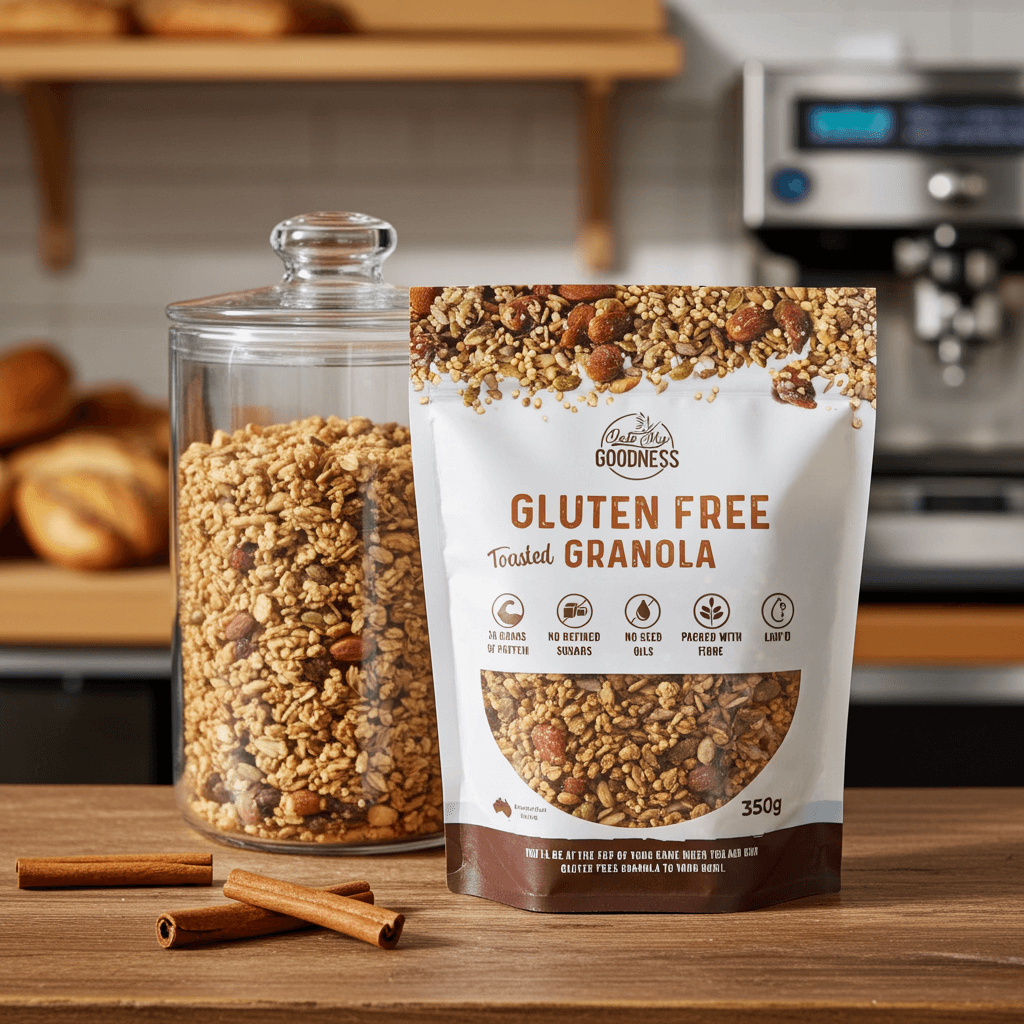Many people are unaware of “what is refined sugar”. Refined sugar is a sweetener derived from natural sources, such as sugarcane or corn, which are commonly found in many types of food. Refined sugar is usually found in breakfast cereals, soft drinks, flavoured drinks, and many other foods. Everyone has a minimum requirement for sugar consumption, but refined sugar is an ingredient that offers little nutritional value and has a negative impact on long-term health.
Knowing what refined sugar is and which foods contain it can help you reduce your intake and switch to natural sweeteners that are healthier and more beneficial for your body!
What Is Refined Sugar?

So, what is refined sugar? Refined sugar is sugar that has been heavily processed to remove naturally occurring nutrients and molasses. The most common type of sugar is table sugar, also known as sucrose, which is extracted from sugar cane or sugar beets, and is a form of added sugar. Refined sugar is a highly processed sweetener that is not beneficial to the body when consumed frequently. If you enjoy sweet foods or those containing added sugar, it is highly recommended to opt for natural sweeteners, such as honey or maple syrup, instead of refined sugar.
Although it contains only a small amount of nutritional content, that doesn’t mean you should avoid refined sugar altogether. The American Heart Association (AHA) recommends moderate amounts of refined sugar, such as 25 grams for women and 37.5 grams for men, to manage sugar intake effectively. If you don’t consume more than that amount, refined sugar is not a harmful type of sugar for the body.
How Refined Sugar Affects Health
Because it is a highly processed ingredient, consuming it in large quantities can have numerous negative impacts on the body. If consumed too often, the body will feel more tired, crave more sugar, and experience other adverse effects. High intake can also disrupt gut health by feeding harmful bacteria, leaving less room for beneficial bacteria that support digestion and immunity. Moreover, it will lead to several diseases such as obesity, diabetes, and even cancer. Therefore, avoid consuming too much refined sugar whenever possible and use it in moderation.
Common Foods with Hidden Refined Sugar

Sometimes, even though you have tried to reduce the amount of refined sugar intake in your daily consumption, some foods unexpectedly contain refined sugar. Without you knowing it, many foods and snacks are considered healthy but have a high content of refined sugar. Examples of these hidden foods are low-fat yogurt, granola, breakfast cereal, protein bars, flavoured coffee, ketchup, and chocolate milk.
Although they are often considered very healthy foods and drinks that provide many nutritional benefits to the body, they also contain refined sugar. However, the solution to finding out whether a particular food contains refined sugar is to check the labels. Identifying these hidden sources helps reduce intake and encourages healthier swaps.
How to Reduce Refined Sugar in Your Diet
Reducing refined sugar consumption can be a significant challenge for some individuals, particularly those who enjoy sweet foods. However, cutting back on refined sugar doesn’t mean giving up sweetness altogether. You can get sweetness not only from refined sugar but also from natural sugar found in various ways and many types of foods that taste sweet naturally!
For example, try replacing refined sugar with natural sweeteners like maple syrup, snack on naturally sweet fruits like bananas, and opt for refined sugar-free breakfast options, such as overnight oats.
Recommendation: Oats My Goodness and Refined Sugar-free Breakfasts

Do you want a breakfast option that is delicious, delightful, and healthy, yet doesn’t contain refined sugar? Overnight Oats from Oats My Goodness can be the best solution to your problem! With many interesting flavour options, you will not get bored with consuming it every day.
Moreover, it is also a convenient meal that is easy to grab, provides an energy booster in the morning for a day of activities, and is suitable for anyone to consume. Additionally, they offer granola and muesli, which are perfect for breakfast. With healthy ingredients and no refined sugar, you don’t have to worry about consuming them over a long period of time.
Frequently Asked Questions
What are examples of refined sugars?
Examples of refined sugars include white table sugar, brown sugar (which is white sugar with molasses added back), icing sugar, and high-fructose corn syrup. Other forms include glucose syrup, dextrose, and maltose, which are commonly used in packaged foods and beverages. They’re frequently used in soft drinks, lollies, baked goods, and processed foods for flavour and texture.
How to avoid refined sugar?
Avoiding refined sugar starts with reading labels carefully to identify different types of sugar. Look for hidden sugar terms, such as sucrose, glucose, corn syrup, maltose, or dextrose. Planning your meals at home also helps reduce dependence on processed products. Replace soft drinks with sparkling water, and baked sweets with homemade versions sweetened lightly with honey or fruit puree.
What is the difference between sugar and refined sugar?
The main difference lies in processing. Naturally occurring sugars are found in whole foods, such as fruits (fructose), dairy products (lactose), and some vegetables. These sugars come packaged with fibre, vitamins, and minerals, which help the body digest them slowly and provide lasting energy. Refined sugar, on the other hand, is extracted and processed to remove all nutrients except calories.
Conclusion
Refined sugar is everywhere, but understanding what it is and how it impacts your body makes it easier to reduce. By focusing on whole foods and choosing clean, nourishing options, you can enjoy sweetness without the crash. Swapping refined sugar for naturally sweet alternatives, such as fruit, and prioritising nutrient-dense meals can improve energy, gut health, and long-term well-being.
For an easy step towards a refined sugar-free lifestyle, check out Oats My Goodness, which offers plant-based breakfasts like overnight oats, granola, and muesli that keep you full, energised, and free from hidden nasties.







